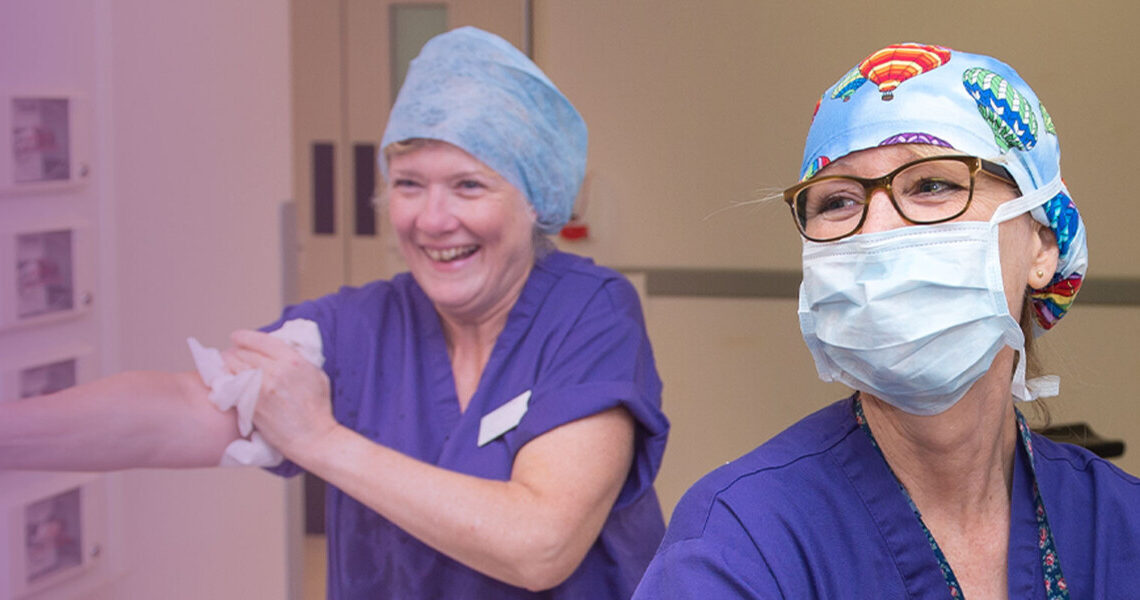
Practice Plus Group
Practice Plus Group is the largest independent provider of healthcare services to the NHS. We are passionate about great healthcare. We believe that anyone should be able to access excellent care, whether via the NHS or privately. Our breadth of expertise spans surgery, diagnostic imaging, offender health and urgent care including the NHS 111 service.
We are proud to be at the forefront of developing new and exciting ways to support the Nation’s health too, including a mobile sight-saving service and the pioneering of one-day joint replacement surgery, that allows people to recuperate in the comfort of their own home.
Most of all we are proud of our teams and their commitment to their patients, colleagues and their own development. We champion this with training that ranges from apprenticeships to support with Masters qualifications. We also provide access to mentors and a structured career pathway.
Our services, particularly those that run the length of the south coast, have a long association with Armed Forces personnel. This includes helping to train members of the Services at our walk-in centres and one hospital medical director joined us following his career in the Royal Navy.
How experience and support from Practice Plus Groups helps Leigh support Veterans in prison…
A former Non-Commissioned Officer in the Royal Army Medical Corps is now helping Veterans in English prisons get support through her career with Practice Plus Group. Leigh Humpleby is our head of healthcare at HMP Wakefield. Between 2005 and 2014 she was an Army combat medic and operating department practitioner.
Leigh was deployed to Basra, Iraq, in 2007 as a combat medic and in 2012 she was sent to Camp Bastion as part of an operating theatre team.
She explained: “Leaving the Armed Forces is a challenge for us all, but with perseverance and support many of us transition successfully into civilian life.
However, for a small but significant number, the challenges they face lead to mental health problems, alcohol or drug misuse and even contact with the police and justice system.”
Government statistics estimate that around 4% of people in custody or on community orders are ex-Armed Forces personnel. External estimates have reported that the proportion of ex-Servicepeople in the prison system could be as high as 17%.
Experience
Leigh’s Army experience has given her an insight into the issues faced by those with Service-related PTSD. She said: “Sometimes former Military personnel in prison have problems with the usual therapy our patients receive. When they recall what they have seen, they worry that the person listening will never be able to understand, no matter how compassionate, empathetic or well-meaning they are.
I was fortunate. I came out into a great support network. I also joined Practice Plus Group where I found the training, support and opportunities that have enabled me to carve out a career. Now I can help to ensure we provide excellent day-to-day care for prisoners, but I can also influence the support Veterans receive in the 47 English prisons where we provide healthcare and that is a great feeling.”
Down in Portsmouth, operating department practitioner (ODP) Basil Song has advice for people leaving the Military. He said: “I was a medic assistant in the Royal Navy and Served for 24 years, seeing action on HMS Invincible in the second Gulf War. I would say to anyone preparing to leave the Armed Forces that preparation is everything and you need to start early. We know the drill: it’s a case of practise, practise, practise, so that come ‘race day’ you are ready. The same is true when preparing for a life outside. Decide what you want to do, get the qualifications you need and find every excuse to practise those skills.
I was able to study for my ODP qualifications, which were relevant for working in mainstream healthcare services. I joined what is now Practice Plus Group Surgical Centre, St Mary’s, 15 years ago and I have never looked back.”
Advantage
Basil believes people who have been trained in Service discipline have a tremendous advantage as they move into ‘civvy street’. Having resilience and a good work ethic, as well as the ability to see the bright side of things makes them effective and popular colleagues.
Basil has a key role supporting anaesthetists and surgeons in theatre, and monitoring patients as they recover before their return to the ward.
He has also taken on additional duties maintaining the department’s stores. He said: “The disciplined and organised work patterns you have learned do not leave you. When we moved to a new building I volunteered to set up the stores, a task most people were dreading.
To me it was very clear, it was what we did in the Royal Navy, day in and day out. The team were amazed when the new stores were fully functional in a fortnight, and everyone knew just where to find what they needed!”
To learn more about nursing and other career opportunities at Practice Plus Group visit our website:
www.practiceplusgroup.com/our-jobs
or email: careers@practiceplusgroup.com




